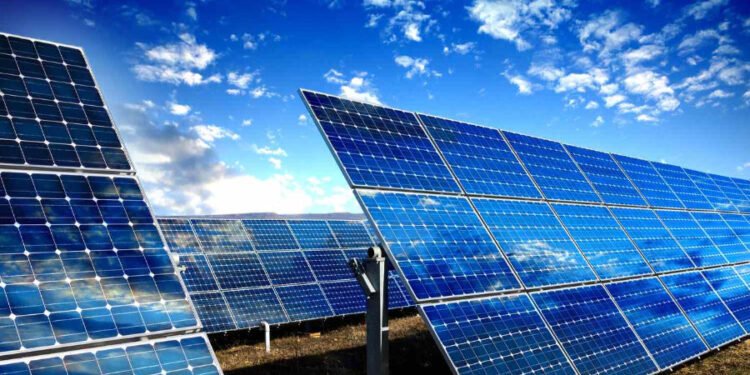Solar energy is one of Earth’s most versatile forms of clean power. It’s a renewable energy source that can help reduce greenhouse gas emissions and air pollution.
It can also help use vast areas of land that aren’t otherwise utilized. These land areas can be used to produce electricity using photovoltaic solar panels.
It’s Clean
Solar power is a clean energy technology that uses the sun’s natural energy to create electricity. It is also renewable energy, meaning it can be used indefinitely without decreasing availability or impacting the environment.
Unlike fossil fuels, solar is not harmful to the environment because it doesn’t produce greenhouse gas emissions. The benefits of solar power is that it is a better option to reduce global warming and protect the planet.
Because it doesn’t devastate land and ecosystems as coal, oil, and natural gas do, it is also a sustainable kind of energy. It may be positioned wherever there is adequate light.
This technology is not only good for the environment, but it is also a cost-effective way to save money on your utility bills. In some states, homeowners can sell their excess electricity back to the electric company to offset their total electricity costs.
This is called net metering, which has been popular among homeowners since the 2005 Energy Policy Act. Homeowners can even store their excess energy in batteries and draw it when needed, such as during a heavy overcast day or when the sun isn’t shining.
It’s Affordable
Solar power is a viable renewable resource that can help to decarbonize the planet. It is cost-effective and offers a variety of environmental benefits, making it an attractive choice for homeowners.
While the initial cost of a residential solar system may be substantial, it will likely pay for itself over time as you save on your energy bills and receive a federal tax credit. In addition, state incentive programs and utility net metering can further decrease the out-of-pocket costs of installing a solar system.
Solar energy is the most economical renewable option for many people and homes. It also helps to reduce the nation’s dependence on fossil fuels, which are becoming increasingly rare and are predicted to run out within a few decades.
The cost of solar technology has dramatically decreased over the last several years, but it is still a capital-intensive investment. A typical installation for a residential solar system will cost between $18,000 and $20,000.
It’s Versatile
Solar power is a flexible replacement for conventional energy sources like fossil fuels and electricity. It may be utilized for many different things, including lighting, water heating, and even automotive power.
Its versatility is reflected in the technology that makes it work, from photovoltaic panels to mirrors that concentrate sunlight. The best technologies can convert solar radiation into useful electrical or thermal energy for various purposes, from lighting to powering cars and buildings to satellites.
Moreover, technological advances have made the process easier and more cost-effective than in previous years. These include solar cells that can generate more than one watt of energy and more efficient battery storage.
In conclusion, using solar energy is an excellent method to lessen your carbon footprint, save money on energy costs, and help to create a world with cleaner air. With all these benefits in mind, you’ll agree that solar is the future of renewable energy. It’s the cleanest, most affordable, and most reliable choice for your next power solution.
It’s Renewable
Solar energy is a natural energy source coming directly from the sun. It is renewable, which can be used repeatedly to generate electricity or for other purposes, such as heating water.
It is also a clean and sustainable energy source without pollution or greenhouse gas emissions. This is important because burning fossil fuels – coal, oil, and gas – releases many harmful air pollutants into the atmosphere.
The amount of sunlight hitting Earth’s surface each hour exceeds the world’s energy needs. It is possible to harness this energy for power and heat using various technologies, such as photovoltaics and solar thermal electricity.
The fastest-growing form of solar energy is solar photovoltaics, made from silicon or other materials that transform light directly into electricity. This technology has existed for decades but has only become commercially available and affordable. It’s now a major part of the global energy market and has more than 700 GW installed, meeting 3 percent of global electricity demand at the end of 2020.
It’s Reliable
In recent years, solar panels and batteries have become more accessible, inexpensive, efficient, and resilient. This means homeowners and businesses can generate energy, providing stability and peace of mind.
This is especially true in remote locations or when there are power outages. This also allows solar energy to become a sustainable alternative to fossil fuels, which produce harmful pollutants and are not renewable.
Another reason why solar power is reliable is because it is available worldwide. This is especially true in regions that receive a lot of sunlight, such as the equatorial belt.
Additionally, solar panels can be stored in batteries to provide power when no sunny days exist. This allows you to use your solar electricity for years and save money on your electric bills.
Finally, solar power is very easy to install and maintain. It can last decades if you are careful with it. This makes it an excellent option for people looking for a reliable power source that is easy to maintain.

